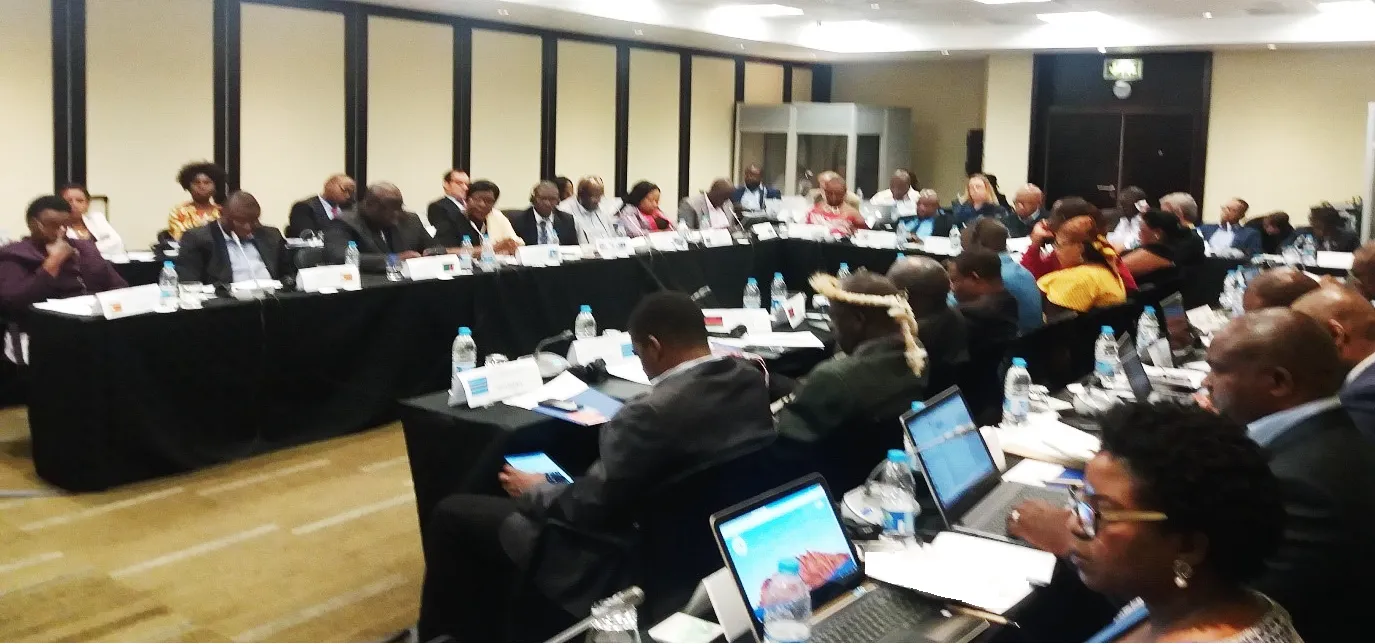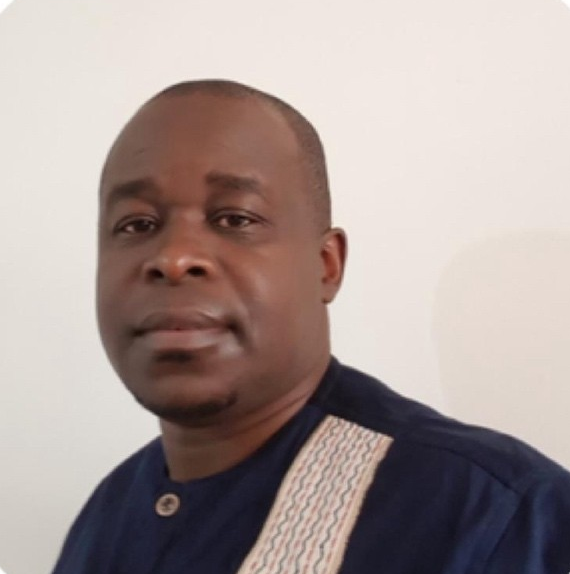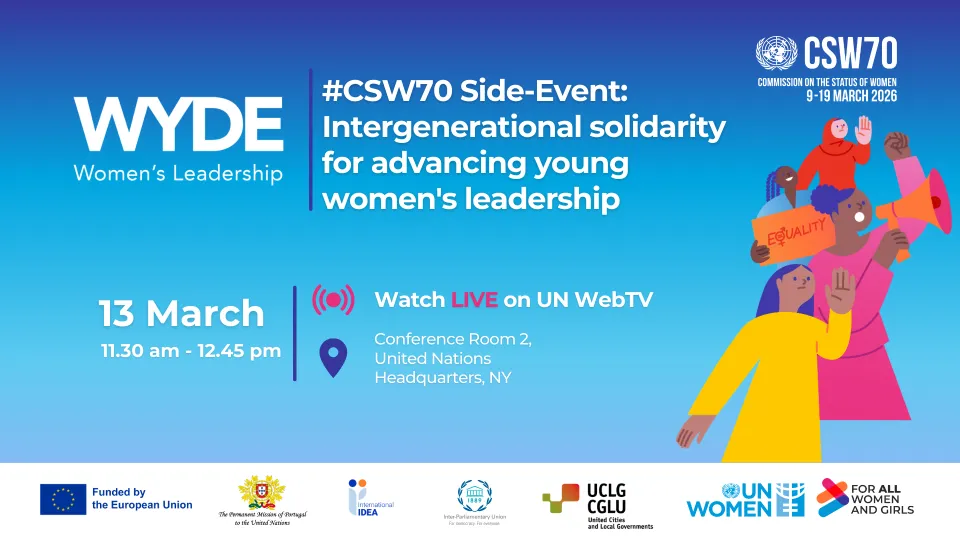Fostering a developmental approach to the extractive sector governance in Southern Africa

To elevate the discourse on developmental approach to natural resource governance, International IDEA Africa and West Asia Programme in partnership SADC Parliamentary Forum convened a two-day High Level Policy Dialogue on "Building Regional and National Capacities for a Developmental Approach to the Extractive Sector Governance in Southern Africa". The dialogue was held in Johannesburg, South Africa from 21 to 22 September 2017.
Southern Africa is endowed with lucrative mineral resources such as diamonds, gold, copper, coal, platinum, and uranium. The sub region has proven reserves approaching $5 Trillion in value, with approximately 3,000 active registered mines. Most of the world`s chromium, vanadium, platinum and diamonds originate in the region, along with 36 per cent of gold and 20 per cent of cobalt[1]. The region also has a legacy of colonial or settler regimes – that often privileged the interests of mining companies over the welfare of local inhabitants and the protection of the environment. According to Zurcom International 2014 report, Southern Africa minerals account for an average of 60 per cent of foreign exchange and about 10 per cent of the gross domestic product for the region. Earnings from recent oil, gas and mineral discoveries could lead to an increase of government revenues of between 9 per cent and 31 per cent in the first ten years of production in countries like Mozambique and Tanzania[2].
Undoubtedly, extractive industries have emerged as a powerful engine of economic growth and inclusive sustainable development. However, mining in Southern Africa has often been criticised as an enclave sector that at best contributes little to economic development and at worst does substantial social and environmental harm[3]. Like the rest of Africa, Southern Africa suffer from the same malaise, that is, the paradox of plenty, where abundant endowments of natural resources, including minerals, are not translated into equivalent levels of prosperity, broad based development and resource based industrialisation.
One key obstacle preventing Southern African countries from realizing this potential is weak governance. Lack of strong institutions and weak policies aimed at short-term gains rather than at long-term development objectives and easy access to revenues make governments less accountable and more likely to preserve the interests of the minority governing elite with limited benefits for the population[4]. The level of poverty in most resource-rich countries in Southern Africa has not been reduced, as predictions based on their economic growth performance would suggest. Cases in point, most resource rich Southern African countries have some of the largest gaps between income and human development as reported in the United Nations Development Programme’s Human Development Index (HDI)[5].
The African Mining Vision (AMV) - adopted by Heads of States in 2009. The AMV provides a compelling thrust towards “transparent, equitable and optimal exploitation of mineral resources to underpin broad-based sustainable growth and socio-economic development”. To this end, the AMV seeks to use Africa's natural resource sector to transform the continent's social and economic development path in order to address the challenges of poverty and limited development. It seeks to set Africa on an industrialization path, based on its natural capital, to enable the continent to take its place in the global economy. Undoubtedly, the domestication of the AMV (at sub regional and national level) to ensure traction towards a developmental approach to natural resource governance is imperative.
The High-Level Dialogue was attended the House Chair for the Parliament of the Republic of South Africa, Honorable Thoko Didiza; Secretary General of SADC Parliamentary Forum, Dr. Esau Chiviya; ACBF Director for Learning and Knowledge; and International IDEA Regional Director for Africa and West Asia, Professor Adebayo Olukoshi; representatives of national parliaments in Southern Africa, civil society representatives and experts on natural resource governance.
Key Recommendations of the High-Level Dialogue
Participants to the high-level technical consultation reflected on the status of natural resource governance in Southern Africa thereafter resolved and recommended;
1. Paradigm shift towards a developmental approach to the extractive sector governance in Southern Africa. A developmental approach on the extractive sector governance is one founded on prioritizing processes, policies and institutions which purposefully promote national development and ensure a socially legitimate and inclusive development, through the reduction of poverty and improving human well-being. The new approach must emphasize - where practicable - the need for “greening development”. The vast mineral resources of Southern Africa can become a key driver of socio-economic transformation of SADC countries if they are deliberately linked to the developmental objectives.
2. Domesticate the Africa Mining Vision ensuring linkages of the mining regimes with the broader economy. Southern Africa governments should revise fiscal regimes and overall tax policies for the extractive sector to close fiscal gaps that drive tax evasion, and avoidance and illicit financial flows (IFFs) from Africa. They should use AMV guidelines to address these fiscal leakages. In particular, SADC countries with vibrant extractive sector should endeavour to domesticate the AMV by developing country-specific mining visions (CMVs) that provide opportunities for job creation and self-employment by supporting the development of local industries, value addition projects and the deliberate creation of broader economic linkages. SADC countries should follow a targeted but holistic approach towards CMV design and implementation, including an incremental approach focused on entry-points that reflect country-specific needs and developmental imperatives.
SADC should strengthen regional cooperation on extractive sector governance, principally through the domestication of the AMV (i.e. SADC Regional Mining Vision (RMV)) to enhance traction, amongst others, on the creation of mineral value chains. Strategic regional cooperation should also address shared and common developmental issues in the extractive sector such as geological data, infrastructure, and IFFs from the sector.
The region should foster a natural resource governance architecture that transcends metals and alloys and pays attention to phosphates, fertilizers, nitrogen, steel, copper, and other minerals directly linked to its industrialization opportunities. These are minerals critical to the achievement of Southern Africa’s own development and are consistent with SADC’s industrialization strategy. The broader focus on minerals that are linked to the growth in Southern African agriculture, food security, infrastructure development and value-addition for employment creation is long overdue.
3. Prioritise citizen and civil society engagement in the formulation of policies to protect national interests as well as the creation of an enabling environment for an inclusive and sustainable developmental process. The effective participation of citizens will strengthen the demand-side for state accountability and create broader awareness of the value of natural resources.
4. Enhance capacity of the actors and stakeholders involved in high value natural resource extraction, development of regulatory frameworks, and processing, marketing, management of revenue and policy oversight.




